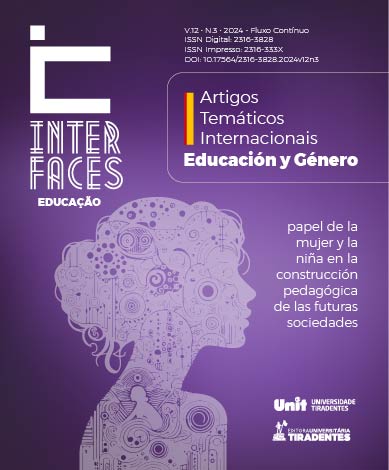Analysis of Teachers and Students Perception from a Federal University of High Education About Education by Competencies and Active Methodologies through Factor Analysis
DOI:
https://doi.org/10.17564/2316-3828.2023v12n1p226-244Published
Downloads
Downloads
Issue
Section
License
A Revista oferece acesso livre e imediato ao seu conteúdo, seguindo o princípio de que disponibilizar gratuitamente o conhecimento científico contribui para a democratização do saber. Assume-se que, ao submeter um artigo, o(a) autor(a) se reconhece como detentor(a) do direito autoral sobre ele e autoriza seu livre uso pelos leitores, podendo ser, além de lido, baixado, copiado, distribuído e impresso.Abstract
Competence-based education, combined with the use of active methodologies, proposes a new dynamic in process of professional training, which uproots the traditional teaching-learning concept focused on teacher, a recurring agenda in discussions that involve centers of analysis of propositions and updates of pedagogical projects of accounting science courses in Brazil. Thus, this study aimed to analyze the perception of teachers and students about importance and use of education through skills and active methodologies. Exploratory research was carried out, through factor analysis, to associate variables that denote such perception. A questionnaire was applied through a survey to 24 professors and 206 students of the accounting sciences course at a federal public university. The results showed the construction of six concepts, from the extraction of factors from the set of items evaluated: (PA1) Dynamic classes with practical problem solving; (PA2) The playful in the development of competences; (PA3) Good practices of the dedicated teacher; (PA4) Rancid of passive methodologies; (PA5) Diversification of evaluation; and (PA6) Efficient teaching plan. The results showed that, with the exception of factor (PA4), which involves ingrained habits, all other factors are compatible with the theoretical bases that advocate the teaching-learning process and can contribute to a solid formation based on knowledge, science and in technologies. This indicates that it is a favorable environment for the construction of the new pedagogical project of the course, which, in turn, would be in line with the precepts proposed in the new curricular guidelines for accounting sciences.


















